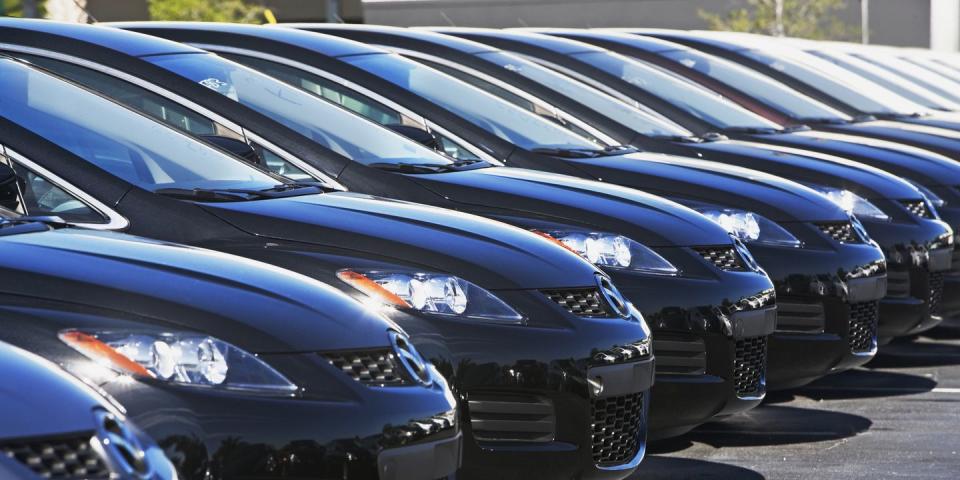Learn What Happens to Your Warranty at the End of Your Lease

Leasing a car has many benefits, like getting a more affordable payment on a brand-new car and the option to get a new model at the end of your contract. Most leases also come with a factory warranty, which helps you maintain the vehicle and avoid costly bills at the mechanic.
However, most bumper-to-bumper warranties expire after three years. While you're typically protected during the entire lease period, you don't always get to keep the warranty if you buy out your lease. Learn more about what happens to lease warranties if you decide to purchase the car.
Looking to buy out your lease? Easily compare rates from lenders below.
Do Warranties Cover a Leased Vehicle?
Most leased cars come with a warranty from the manufacturer. Most manufacturers offer at least a three-year or 36,000-mile bumper-to-bumper warranty. It covers all repairs to the vehicle, except for worn parts, such as tires and brake pads. It also doesn't cover routine maintenance, like oil changes.
Some manufacturers offer additional warranties, such as Kia's 10-year/100,000-mile limited powertrain warranty. These warranties cover your car's moving parts, such as the engine, transmission, and suspension.
Powertrain and anti-perforation warranties, for example, may run longer than your bumper-to-bumper coverage — depending on who makes your vehicle.
By the time your lease ends, the vehicle may still be covered by one of the manufacturer's warranties. However, this isn't always the case. It's important to talk to the dealership to find out what warranties are still valid if you're thinking about buying out your leased vehicle.
What Happens to Your Warranty if You Purchase Your Leased Car?
Most lease warranties last for three years, which is also the most common lease period. If your lease ends in three years and your warranty ends in three years, you won't be able to keep the warranty if you purchase the vehicle at the end of the lease period.
However, if you purchase the vehicle before the lease ends, you would most likely be able to keep the warranty until the warranty contract is up.
Is a Lease Buyout Right for You?
If your lease includes a buyout option, you can purchase the car when your agreement expires. The alternative is to return it to the dealership and get a new lease, or potentially purchase another vehicle. If you're considering a lease buyout, here are some questions to ask yourself.
Is the Vehicle Worth It?
The purchase price of your leased car is based on its residual value, which can be found in your lease contract. The leasing company calculates this figure using a predicted value method. If you choose to keep the car and exercise your buyout option, you can expect to pay this fixed amount plus any additional fees.
To determine the car's value at the end of your lease, use a site like Kelley Blue Book to calculate the current market value of your leased car. You may want to consider buying the vehicle if the buyout amount is less than its value. However, if its market value is less than the residual value, you might pay more than the car is worth.
Is It in Good Mechanical Condition?
One perk of leasing a car is that it's under warranty for the entire duration of your agreement. However, since most warranties and lease agreements end simultaneously (typically at the three-year mark), you may want to consider purchasing an extended warranty.
This will be an additional expense for you. You'll also want a certified technician to check the vehicle's systems to ensure everything is mechanically sound before you buy it out.
Have You Exceeded the Mileage Allotment?
Every car lease includes a specific annual mileage limit. If you exceed this limit, you'll end up paying for the overage charges. However, it may be less costly to buy out your vehicle if you turn it in with a high odometer reading.
For example, if you lease a 2023 Honda Pilot and exceed your mileage limit by 5,000, and your per-mile charge is 15 cents, you'll have to pay an extra $750 when you turn in your leased car. In this case, buying out the agreement may be a better financial decision.
What Condition Is the Car In?
If you've done a terrific job taking care of your vehicle inside and out, you might be happy to keep the car. But if there's any damage, the leasing company will charge you a penalty fee. If you choose to buy the vehicle, you won't have to pay the damage fee.
A Good vs. a Bad Lease Buyout
A lease purchase makes more sense in some circumstances than in others. For example, if your buyout price is $15,000 and you owe $2,000 in excess mileage fees and $500 in wear-and-tear charges, you could return the vehicle to the dealership and just pay $2,500.

 Yahoo Autos
Yahoo Autos 